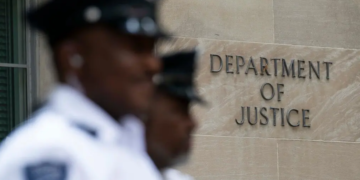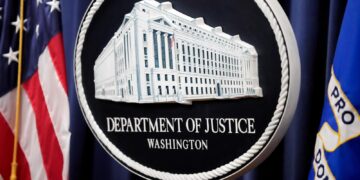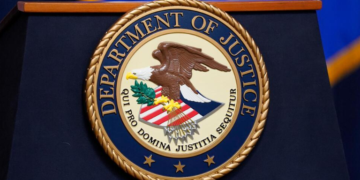Dec 7, 2024 Story by: Editor
The U.S. Department of Justice (DOJ) has determined that the Memphis Police Department (MPD) consistently engages in practices that violate the civil rights of Memphis residents. This finding was detailed in a recently released report following a 16-month investigation.
The investigation revealed numerous violations, including the use of excessive force, unlawful stops, searches, and arrests, as well as discriminatory actions against Black residents and individuals with behavioral health disabilities. The report also highlighted deficiencies in the city’s and department’s response to mental health crises.
“The people of Memphis deserve a police department and city that protects their civil and constitutional rights, garners trust, and keeps them safe,” said Kristen Clarke, Assistant Attorney General for the DOJ’s Civil Rights Division, in a press release. “Our exhaustive investigation found that the Memphis Police Department engages in a pattern or practice of using excessive force, conducting unlawful stops, searches and arrests, and discriminatory policing of Black people and residents with behavioral health disabilities. Our investigation also identified troubling policing practices that impact some of Memphis’ most vulnerable residents — its children. We acknowledge Memphis’ cooperation during our investigation and look forward to instituting reforms that will address the harms we identified.”
While the DOJ noted full cooperation from the city and MPD during the investigation, Memphis declined to enter an “agreement in principle,” which would initiate consent decree negotiations. Consent decrees are court-enforced reform plans established after identifying systemic issues in policing.
Patterns of Excessive Force and Unlawful Practices
The DOJ report emphasized that MPD has relied heavily on traffic stops as a strategy to combat violent crime but lacks the safeguards and supervision needed to ensure lawful conduct. This enforcement approach, the report states, has led to consistent rights violations.
“Memphis police officers regularly violate the rights of the people they are sworn to serve,” the report noted. Officers frequently escalate situations during traffic stops, employing excessive force even against individuals who are already restrained. Other troubling practices include firing at moving vehicles, misuse of pepper spray and Tasers, and employing intimidation tactics.
Racial Disparities in Policing
The report detailed significant racial disparities in MPD’s policing, with Black Memphians—who constitute a majority of the city’s population—disproportionately experiencing these violations. Black drivers were found to be 21% more likely than white drivers to be cited for moving violations, with enforcement more intensely focused in predominantly Black neighborhoods. Nearly 90% of citations for equipment violations, such as faulty taillights or tinted windows, were issued to Black drivers.
MPD’s approach to drug-related offenses also displayed racial disparities, with Black individuals being arrested for marijuana possession over five times the rate of white individuals.
Issues in Mental Health Response
Despite the presence of a Crisis Intervention Team to address mental health-related calls, the DOJ found significant shortcomings in the department’s approach. Officers were found to mishandle situations involving individuals with behavioral health disabilities, sometimes resorting to excessive force against vulnerable populations, including children.
The report also highlighted harmful interactions between officers and youth, citing cases where officers used aggressive language, threats, and interrogation tactics that could lead to involuntary confessions.
Findings on ‘Use of Force‘
Between January 2020 and September 2023, MPD officers were involved in nearly 3,000 use-of-force incidents, including unjustified neck restraints and shootings at moving vehicles. The DOJ attributed some of these practices to training methods that promote the use of force as a primary resolution strategy.
Moving Forward
The DOJ’s findings underscore the need for reform in Memphis policing. The department has expressed a willingness to work with the city to address the identified issues, but Memphis’ refusal to enter federal oversight negotiations leaves questions about how these changes will be implemented. Source: Yahoo News
















